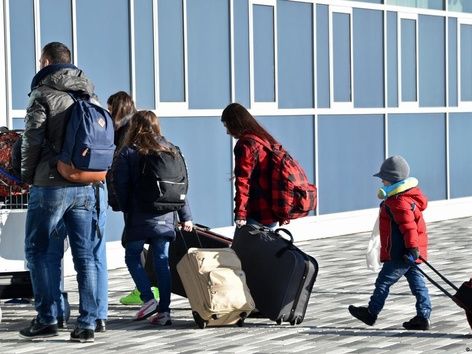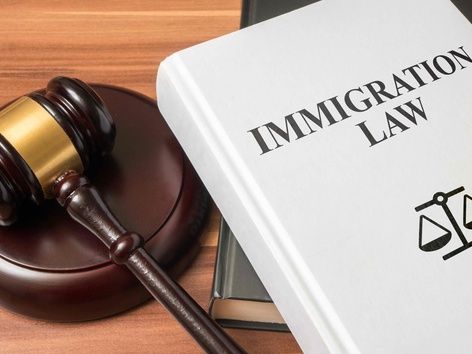Changes in German legislation: new rules for deportation of asylum seekers

The German Cabinet of Ministers has adopted new legislation aimed at facilitating deportation procedures for rejected asylum seekers. The changes in the legislation are seen as an attempt by the country to make the process of selecting those who can be granted refugee status more efficient and restrained. Learn more about the new migration rules in Germany
The German Cabinet of Ministers recently approved a law that aims to ease the deportation of unsuccessful asylum seekers as Chancellor Olaf Scholz seeks to address migration as a major political issue. Currently, the largest number of expats arrive in Germany from Poland, the Czech Republic, Ukraine, Italy, Syria, and Austria.
The new law provides for a simplified deportation procedure for people who have been denied refugee status or other types of protection. It is expected that this will allow for a faster and more efficient deportation procedure for those who have not been granted protection status in Germany.
Main provisions of the draft law about deportation of asylum seekers
The draft law, which is awaiting approval by the parliament, provides for significant changes in the deportation system in Germany. In particular, the maximum period of detention before deportation may increase from 10 days to 28 days, and the process of expulsion of persons with links to a criminal organization will be simplified. The draft law also grants the right to search homes to find documents that will allow for clear identification, and abolishes the obligation of the authorities to warn of deportation in certain cases.
The influx of asylum seekers, who joined more than a million Ukrainians who were forced to flee their homeland after Russia's military invasion, is putting a significant strain on German reception centers for migrants and refugees. The changes in legislation are a response to the need for effective management of migration flows, but they also raise questions about the protection of rights and the humanitarian nature of solving migration problems.
Attitude of the authorities to the legislation to simplify the deportations of rejected asylum-seekers
After the October 8 regional election debacle, where voters expressed their dissatisfaction with the bickering three-party coalition, Scholz took the initiative on migration. Recently, Secretary of the Interior Nancy Feather announced new legislative changes, and Scholz has shown his willingness to support them.
Announced two weeks ago, the bill provides for an increase in the maximum period of detention before deportation from 10 to 28 days. Scholz said that Germany should start deportations "on a large scale" for migrants who have no right to stay in the country. On Wednesday, Minister Feser reiterated this position, emphasizing the need to limit illegal migration to protect the fundamental right to asylum.
Germany has seen a 27% increase in the number of people deported this year, but Feser argues that further action is needed. Many rejected asylum seekers still have temporary residence permits for various reasons. Feser also plans to increase the minimum and maximum prison sentences for those involved in migrant smuggling and hopes to have these changes approved in November. At the same time, agreements are being concluded with countries to address the issue of deportation and create opportunities for legal immigration.
Daria Rogova, Head of Insurance at Visit World
To move, travel or work safely in a new country, you will need travel insurance. You can apply for an extended policy on our website here.
Products from Visit World for a comfortable trip:
Checklist for obtaining a visa and necessary documents in Germany;
Legal advice on immigration in Germany;
Travel insurance for foreigners in Germany;
Medical insurance all over the world.
Recommended articles
1 min
Expats
New immigration rules in Great Britain: the country is reducing the number of foreigners
The British government has announced tough new immigration rules that will reduce the number of people who can move to the UK each year. Learn more about the planned changes in the UK's migration policy
11 Dec. 2023
More details3 min
Expats
Living abroad, especially in Germany, can be a challenge, but there are a variety of useful resources and services to help you adapt and get the information you need. Learn more about the most popular apps that will make life in Germany easier
23 Nov. 2025
More details2 min
Popular
Migration to the EU: current changes in the migration legislation of European countries
Today, the world celebrates International Migrants Day. In 2022-2023, the level of migration in European countries reached peak levels. Find out more about how many foreigners currently live in the EU and what changes were made to migration legislation by states in 2023
18 Dec. 2023
More details3 min
For refugees
French migration legislation: the policy of the revolving door
Paris is changing its tactics - migration legislation will be stricter. A new draft law has been submitted to the government to solve the problem of the influx of illegal migrants. Find out more about what awaits migrants in France and what changes are expected in 2024
21 Dec. 2023
More detailsAll materials and articles are owned by VisitWorld.Today and are protected by international intellectual property regulations. When using materials, approval from VisitWorld.Today is required.
